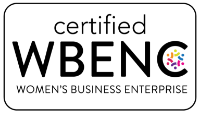You apply for a great job, and you think you’re a perfect fit based on your experience. Then the interviewer tells you they are reviewing several other candidates. How do you position yourself as the top candidate? What skills will give you a competitive advantage?
No matter what type of professional role you’re seeking – software developer, human resources manager or account rep – there are certain skills and aptitudes that every employer wants in 2025 and beyond. Here are ten skills that will help you get noticed and get hired.
Recommended: 14 Proven Tips to Stand Out to Recruiters
1. Flexibility
The job you applied for isn’t always exactly the job you end up doing, for the simple reason that we live in an era of rapid change. Companies need employees who are willing to adapt to new circumstances and learn new skills — especially as technology advances rapidly.
What does this look like in practice? It means being open to new ideas, having a growth mindset and being willing to take on challenges and learn from them. Employers need people who can pivot and handle change with ease.
2. Digital Literacy
Basic computer skills are needed to land today’s good-paying roles. In 2025, however, employers will be looking for more than basic digital literacy. The ability to learn how to use new software and tools will be key.
This can look like having experience with the software programs used in your industry or role and being comfortable using communication tools like Microsoft Teams and Zoom. It also means an interest in mastering new technologies like artificial intelligence.
Pro Tip: Take the first step in learning the tools of your trade. If you know a particular industry or role requires knowledge of certain software, start learning it now to get ahead of the game. Software certifications can help set you apart.
Recommended: Get Hired in Today’s Job Market – 5 Tips
3. Problem Solving
In today’s fast-paced world, problem solving is no longer an executive skill. Everyone needs to know how to think critically and resolve unexpected problems on the job. Problem solving involves asking questions, breaking down complex problems into smaller parts, and gathering data to inform decisions. And in many professional roles, being able to collect and interpret data is important. Employers increasingly need people who can use data to identify patterns, trends and opportunities.
For example, knowing how to tackle a large dataset in Excel or use data visualization tools like Tableau can help make you a valuable asset to your company. Even if your role doesn’t directly involve data analysis, a basic understanding of data analysis can set you apart as a problem solver and critical thinker.
Pro Tip: Start building your analytical skills through free online courses or tutorials on topics like data analysis, coding and statistics.
Recommended: From Certification to Success: 7 Tips to Secure a High-Paying IT Job
4. Emotional Intelligence
While technical skills are the starting point for any job, emotional intelligence (EQ) is one of the important soft skills employers are looking for today. People who are self-aware, can manage their emotions under stress and have strong interpersonal skills have a high EQ.
Emotional intelligence also means the ability to communicate and collaborate with others. Employees with a high EQ are valuable because of their ability to work well with others, which improves an organization’s efficiency, productivity and culture.
Pro Tip: You can take an online course or attend a workshop to improve your EQ. You can also take a free online EQ quiz to identify areas where you can improve.
5. Resilience
Like adaptability, resilience is a skill that has become more valuable in the workplace. Whereas adaptability is about being able to handle change, resilience is about bouncing back from challenges and setbacks.
Employers want people who can handle stress, overcome obstacles and stay focused when things don’t go as planned. For example, if you hit a roadblock during an important project, you can demonstrate resilience by staying positive, keeping calm and working to find an alternative solution.
Pro Tip: Don’t be afraid to ask a supervisor or teammate for feedback on how you handled a recent challenge. It will help you identify areas for improvement and showcase your resilience.
Recommended: 4 Tips to Stand Out to Employers and Land Your Dream Job
6. Active Learning
Employees who love to learn new skills and seek out opportunities to grow are in high demand. This is known as active learning — the process of acquiring new information and applying it in practice.
Active learners are curious, open-minded and not afraid to take on new challenges or ask questions. They engage with their work and look for ways to improve processes and outcomes.
Employers value people with this skill because it shows a willingness to continually improve and adapt to new requirements. It also shows a strong work ethic, as active learners are often self-motivated and driven to succeed.
7. Leadership and Social Influence
Regardless of your role, you should strive for some level of leadership and social influence on the job. Leaders inspire and motivate others, can collaborate or delegate tasks effectively, and make decisions quickly.
Social influence is also important in the workplace. It means being able to communicate with all levels of the organization, gain respect from coworkers and negotiate with others as needed. These skills are key for building relationships, resolving conflicts and achieving common goals.
Even if the role you are seeking is not a formal leadership position, demonstrating leadership and social influence will give you a distinct competitive advantage as an employee or candidate.
Recommended: Top Skills Needed for an IT Analyst Job
8. A Positive Mindset
A positive mindset includes positive-oriented thoughts, beliefs and attitudes, which are key factors for mental fitness. People who are optimistic and give mostly positive feedback about managers and coworkers are more likely to do well in their careers.
It turns out that our survival instincts give us a natural tendency to imagine worst-case scenarios, so for most of us positive thinking is something we need to practice, especially during periods of stress. Some tips for building a positive mindset include focusing on your strengths, rather than your weaknesses. Likewise, focusing on other people’s good qualities helps you build better relationships at work and at home. Practicing self-compassion is important too; when you make a mistake, remember no one is perfect and focus on what you can learn from the situation. Practicing gratitude for what you have, rather than thinking about what you lack, is also important for a positive mindset.
Pro Tip: The first step toward eliminating negativity is understanding you have the power to change your mindset any time you choose. There are dozens of great books on the topics of optimism and positive thinking; try listening to an audiobook while you run errands or commute to work!
9. Time Management
Time management skills help you stay productive and meet deadlines in any role. In an increasingly fast-paced world, employers want people who can use their time wisely, prioritize tasks and stay organized under pressure.
Being good at time management also means being able to identify important tasks and delegate or eliminate less important ones. This will help to maximize productivity and avoid burnout.
Pro Tip: There are a number of great books on time management that can help you improve your skills. In just a few minutes a day, you can become more productive and happy in your job!
10. Reasoning & Ideation
Those who can focus on the big picture and come up with new ideas are highly valuable in any workplace. Demonstrating reasoning and ideation skills means being able to analyze complex situations, spot patterns, pinpoint problems and find solutions.
Employers want people who bring new ideas to the table and contribute to the growth of their business. Being able to think both critically and creatively will make you an asset in any team or leadership role.
Looking For an Opportunity?
By demonstrating strength in these 10 skills employers want, you’ll be well on your way to landing your next role or promotion. If you feel uncertain about your abilities in a particular area, pick up a book or take an online course on that topic. You’ll be glad you did!
BravoTECH works with top talent across multiple industries, including IT, engineering, finance and healthcare. Our team of recruitment experts can help you identify your strengths and find the job to showcase your skills.
If you’re ready to move forward with your career, contact a BravoTECH recruiter at 800.762.7286 or view current jobs at jobs.bravotech.com



